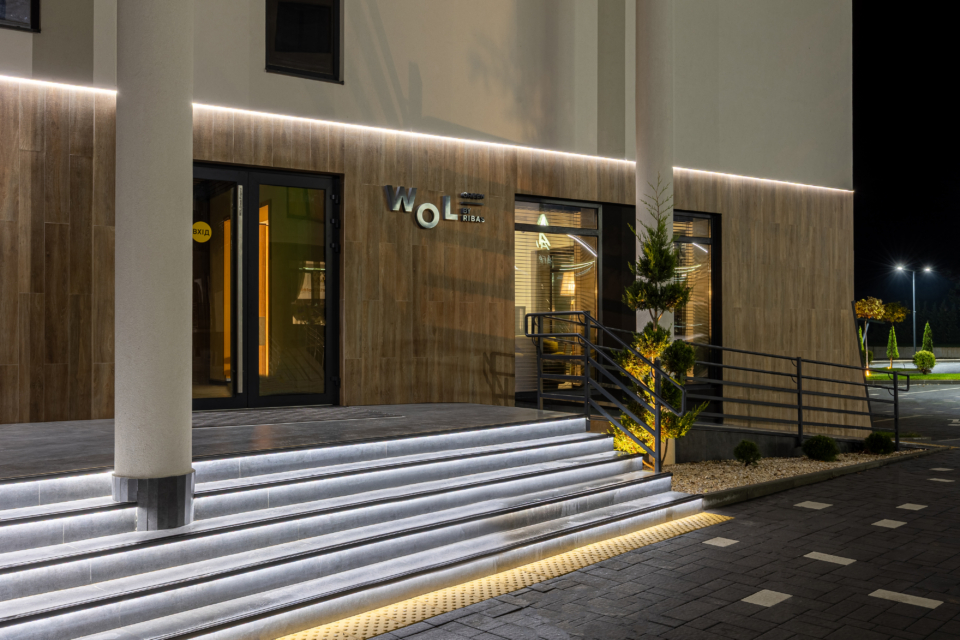Hotel Management Myths: Debunking the Most Common Misconceptions

Despite the steady growth of the hotel business in Ukraine, there are still many stereotypes about hotel management. In this column, I debunk five of the most common myths that both aspiring hoteliers and seasoned investors face — and share insights based on hands-on experience.
Author: Yulia Kosenko, CEO of Ribas Hotels Management
Myth 1: Managing a hotel is easy
This is one of the most widespread — and most damaging — misconceptions. It creates the illusion that listing a property on platforms like Booking.com and hiring a front desk manager is enough for the business to run on its own.
In reality, hotel management is a complex operation involving logistics, financial oversight, human resources, marketing, safety, and service quality. Ignoring any of these aspects inevitably leads to operational and reputational losses.
Myth 2: Quality service is all about the “wow” effect
True service isn’t just about emotional gestures, compliments, or personalized gifts. It’s primarily about a systematic approach to creating a comfortable and predictable guest experience.
Service also includes fundamental elements such as ergonomic space design, available parking, breakfast room capacity, and kitchen efficiency during peak hours. The real challenge isn’t impressing a guest once — it’s delivering consistently high service despite fluctuating demand, staff turnover, and external disruptions.
Myth 3: 100% occupancy = maximum profit
Full occupancy does not necessarily equal financial efficiency. Operating a hotel at 100% capacity over time often leads to lower service quality and a potential loss of up to 15% of customers in the long run.
Optimal occupancy — which maintains a balance between service quality and profitability — is typically around 70–80%. If your hotel consistently operates at full capacity, it’s likely a sign that pricing or infrastructure expansion should be reconsidered.
Myth 4: Listing on OTA platforms guarantees steady traffic
Being present on Booking.com and similar aggregators is just one of many client acquisition channels. In today’s competitive environment, this alone is not enough. Hotels must build strong brand positioning, communication strategies, multichannel marketing, and active reputation management.
Today’s hotel is a brand — it needs to be recognizable, consistent, and clear to its target audience. Without clearly communicated values and advantages, no platform alone will ensure sustainable demand.
Myth 5: A hotel’s success depends solely on its location
While location plays a role in a tourist’s decision-making, it is the hotel’s concept, service model, atmosphere, and overall guest experience that create true value.
There are countless examples of successful hotels in unconventional locations that became tourist magnets thanks to unique experiences. Location is not a guarantee. The real guarantee is the product — and the team that delivers it.

Photo source: Freepik.com
Where do these myths come from?
Most myths have deep cultural and historical roots. For a long time, hotel businesses in Ukraine lacked a professional management culture. Many hotels were launched as side projects, without expert teams or clear strategic frameworks.
Today, the landscape is gradually changing. Specialized training programs are emerging, demand for professional management companies is growing, and new quality standards are being adopted. This is part of the industry’s evolution — and it’s just getting started.
How to build a sustainable hotel business
Hospitality is a complex yet high-potential industry. Intuition or a good idea alone won’t bring results. What’s needed is structured work, a professional team, and long-term strategic thinking.
For those who want to build not just a business, but a resilient hospitality ecosystem, I recommend the following resources:
- “Selling the Invisible: A Field Guide to Modern Marketing” by Harry Beckwith.
- “Four Seasons: The Story of a Business Philosophy” by Isadore Sharp.
- “Excellence Wins” by Horst Schulze (founder of Ritz-Carlton).
- “Motivation in Action” by Klaus Kobjoll.
- Hosco.com — a global platform offering both free and paid hospitality education.
- Cornell University’s online programs — one of the world’s top institutions for hotel management, offering courses from revenue management to service design.
If you have questions or would like to discuss hotel management, feel free to contact the largest hotel management company in Ukraine — Ribas Hotels Group at hello@ribashotels.com.
Follow our blog to stay updated on trends shaping the hospitality industry!
















